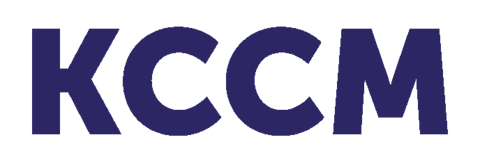Implementing Intelligence: Legal Challenges in Creating AI Solutions – a platform for sharing experiences
Date and time:
15 October 2025 at 14:00 pm
Place:
Sano Centre for Computational Medicine
room 109 in CE building, entrance C5
Czarnowiejska 36, Kraków
Maximum number of participants: 20
Duration: 4h
Wioletta Niwińska1, Anna Kajda-Twardowska1, Michał Kosobudzki1
1Sano - Centre for Computational Medicine, Czarnowiejska 36, 30-054 Kraków, Poland
w.niwinska@sanoscience.org a.kajda@sanoscience.org, m.kosobudzki@sanoscience.org
Keywords: AI law, compliance, data protection, IP law
1. Introduction
Developing AI solutions requires not only technical expertise, but also careful legal and ethical considerations to protect the interests of creators, users, and companies. Adhering to the principles of trustworthy and responsible AI throughout the development process can determine a project's success . A broad, multidisciplinary perspective is key to developing AI systems that comply with normative principles, rules, and standards of trustworthness.
2. Description of the tutorial
The workshop will last four hours and will include a presentation with moderated discussion and a practical session. The first part will provide participants with theoretical knowledge on AI project implementation, including legal frameworks, key concepts, and practical insights. The second part will focus on practical tasks designed to stimulate creative thinking, negotiation, and the application of acquired knowledge. Participants will work in groups and take on roles typically involved in AI projects to simulate decision-making processes and identify key legal and ethical considerations in AI implementation. The workshops will use various methods, including the Walt Disney method.
Open to all conference participants (minimum number of participants is 10) —from lawyers to developers, executives, and engineers—regardless of prior AI or legal experience. Bringing together participants from different professional backgrounds will help identify legal risks from various perspectives. The workshop will end with a group discussion and creation of “golden bullets” – key lessons and takeaways to consolidate new knowledge and skills.
3. Knowledge and skills to be gained
This workshop aims to increase awareness of the complex legal regulations surrounding AI, with a focus on intellectual property and data protection. Through this workshop, participants will gain tips on the information needed to verify and the steps worth planning when creating AI solutions.
References
- https://ec.europa.eu/futurium/en/ai-alliance-consultation/guidelines/1.html
- https://airc.nist.gov/airmf-resources/airmf/3-sec-characteristics/
- Drexl, Hilty et al., Technical Aspects of Artificial Intelligence: An Understanding from an Intellectual Property Law Perspective,Version 1.0, October 2019, available at: https://ssrn.com/abstract=3465577
- https://tipsforyourwebsite.com/what-are-project-management-methodologies/ https://mgrush.com/blog/agile-vs-waterfall/
- https://www.forbes.com/councils/forbestechcouncil/2022/04/20/managing-the-data-for-the-ai-lifecycle/
- https://intellectual-property-helpdesk.ec.europa.eu/news-events/news/artificial-intelligence-and-copyright-use-generative-ai-tools-develop-new-content-2024-07-16-0_en
- Max Planck Institute for Innovation and Competition. (2021). Artificial Intelligence and Intellectual Property Law – Position Statement of the Max Planck Institute for Innovation and Competition of 9 April 2021 on the Current Debate (Research Paper No. 21-10). SSRN. https://doi.org/10.2139/ssrn.3822924
- https://papers.ssrn.com/sol3/papers.cfm?abstract_id=3822924

